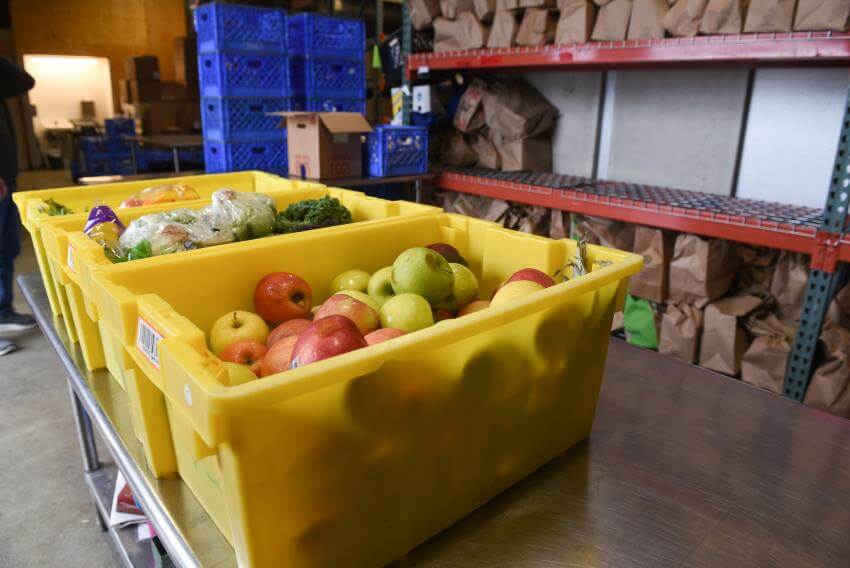
SPU is celebrating accomplishments in affordability, environmental justice, and waste reduction after the state legislative session concluded on March 7. Our Government Relations staff worked with lawmakers to advance legislative and budget requests in the state’s operating and capital budgets, as well as support specific bills. Read about SPU’s legislative agenda here. There were many policy and funding victories that will help us achieve our Community-Centered, One-Water, Zero-Waste vision, though not everything on our agenda was accomplished this session.
Here are five highlights from this session that will protect human health and the environment and advance affordability initiatives for water utilities, especially for us in Seattle.
Priority Budget Requests Funded:
$1.25M – Silver Bay Logging Property Acquisition
SPU will use this funding to acquire a portion of the Silver Bay Logging Property in South Park. Upon purchasing the property, SPU will clean up the site from toxic contamination, build a stormwater treatment facility, conduct flood prevention, and develop the site for community benefit. As South Park is a neighborhood with heavy historical and ongoing industrial pollution and a large population of people of color, this investment represents an ongoing commitment by the City of Seattle to improve the human and environmental health of this area. Acquiring this funding was just the first step in this multi-benefit project.
$300,000 – Low Income Water Utility Assistance Proviso
This funding directs the state Department of Health to study the need for drinking water and wastewater utility assistance for low-income families in Washington and assess the feasibility of a statewide assistance program. The results of this study will help the state understand the water and wastewater utility cost impact for customers across Washington and potentially pave the way for state investment in an assistance program. This is an exciting step that acknowledges that water is a basic human necessity. SPU will engage with planners of the study as a stakeholder in upcoming years.
Policy Accomplishments:
EPR for Mercury-Containing Lights (HB 1185)
This bill was one of SPU’s key legislative priorities because Washington’s existing LightRecycle Program, which has helped increase recycling of lightbulbs and keep toxic mercury out of our waste streams, is sunsetting in 2025. Mercury exposure is harmful to human health and the environment. HB 1185 extends the LightRecycle program until 2035 and phases out the sale of these hazardous lightbulbs in 2029. Consumers are already shifting to LEDs so this will be a natural phase out.By passing this bill, SPU residents, staff, and the environment will continue to be protected from highly toxic mercury, and bulbs will continue to be recycled.
“Phasing out mercury containing bulbs is a critical step for public and environmental health. But these bulbs can last for years, so extending the stewardship program through 2035 will ensure that our residents continue to have convenient access to safe recycling for bulbs from their homes, and producers will do their part to provide responsible management of their legacy products.”
McKenna Morrigan, SPU Strategic Advisor as quoted in Waste Advantage Magazine on how HB 1185 will protect human health and the environment.
Organics & Food Waste Reduction (HB 2301)
This bill improves organics management in Washington and reduces food waste by providing grants for food waste prevention programs and requiring organics diversion and collection from single family and commercial customers by April 2030. It also creates a workgroup to study food donation from businesses.
“HB 2301 is a win for hunger relief, the climate, and health of our soils,” Kate Kurtz, board president of Washington Organic Recycling Council, said in a statement. “The bill also gives facilities and haulers the predictability of feedstock generation they need to make decisions about expansion and other capital investments here in Washington.”
SPU Organics Program Lead Kate Kurtz as quoted in a Waste Dive article on how HB 2301 will increase organics diversion and reduce food waste.
6PPD in Vehicle Tires (SB 5931)
This bill broadens the definition of motorized vehicle tires under the Safer Products for Washington program, meaning that more types of tires will be regulated. This is a win because it will help contribute to the state’s efforts to prevent this chemical from getting into streams and protect Coho salmon from being poisoned.
Maggie Yuse is SPU’s Senior Policy Advisor & State Legislative Liaison.